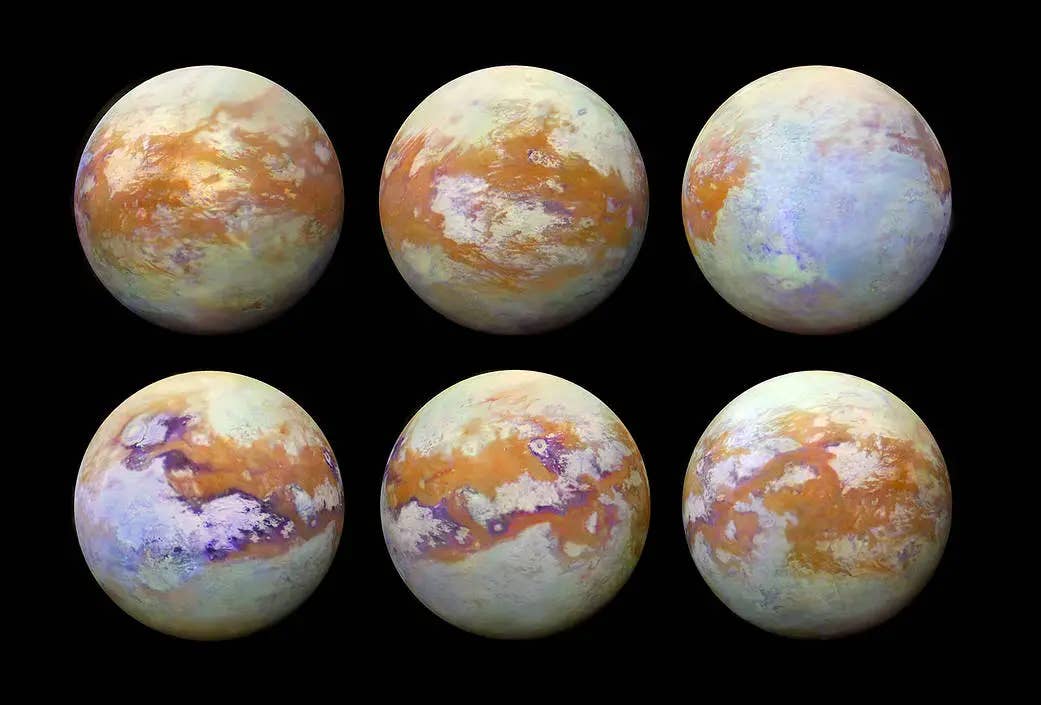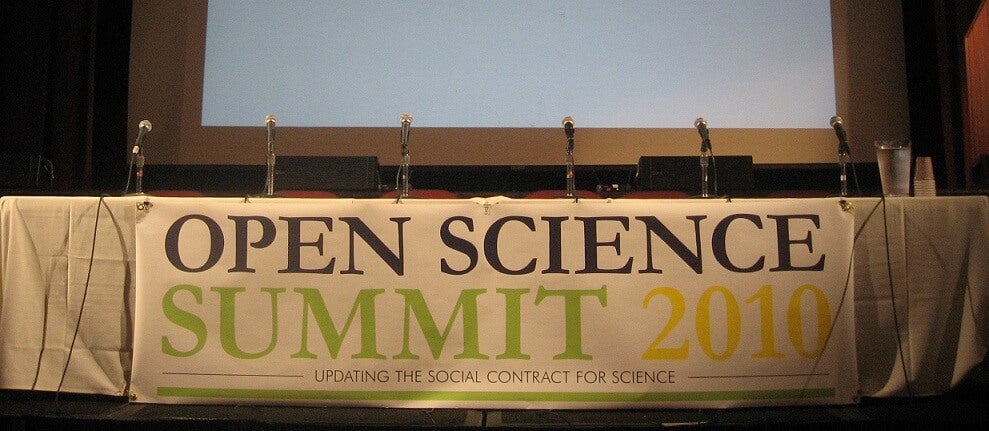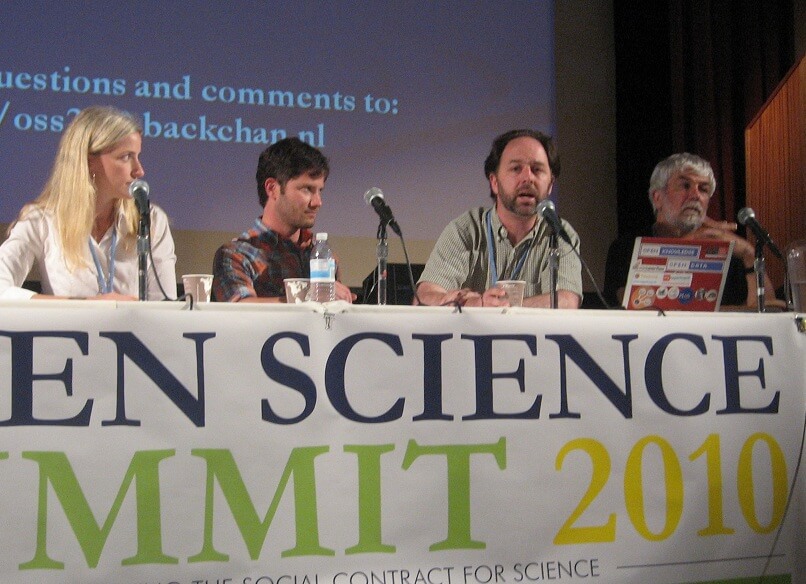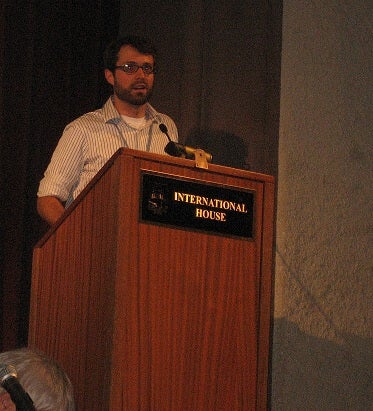Open Science Summit 2010 – Thursday Review

Share
Over the next few days, Singularity Hub will be bringing exclusive coverage of the Open Science Summit 2010 taking place in Berkeley, CA this weekend. The conference is bringing together a wide range of speakers to talk about what 21st century science should look like, with special attention to crowd-sourced, decentralized innovation and development… basically a combination of scientific research and open source.
Topics include synthetic biology, open data access, gene patenting, DIY bio, the future of publishing & peer review, and open source drug discovery. We’ll be highlighting some exciting companies and projects, interviewing a few of the speakers, and generally reporting on presentations that caught our attention. Feel free to tune in at Fora.tv, which is streaming the conference.
So what is open science? There isn’t a clear consensus – and that’s a good thing. The Summit kicked off Thursday with a panel discussion that tackled some of the central questions of the conference. What if all the products of scientific research – data, publications, tools and techniques, you name it – were available to everyone, to use however they wanted, without any restrictions? This radically free and transparent version of research is, to many, exactly where science should be heading.
The two topics that dominated panel discussion were data sharing and open access to publications. Advocates of open access (e.g. pretty much everyone at the conference) argue that sharing data -- all data, even 'failed' data -- would speed up progress and discovery in unprecedented ways. It would also aid transparency in how data is collected and presented, creating a self-policing environment (and maybe avoid future Climategates). But wouldn't open data access lead to scientists having their hard work scooped? Panelists generally agreed that publicly presenting data ensures the authors' credit and prevents intellectual theft.
Some scientists argue that making data available prior to publishing it in scholarly journals (e.g. posting preliminary results online) defeats the purpose of peer-review. Some of the discussion felt these fears are unfounded, and that peer review would still retain its current form at publication; other panelists seemed to hint at a more radically crowd-sourced overhaul of scientific publishing, retaining the standards of publication without its traditional institutions. The panel featured Cameron Neylon, Victoria Stodden, Peter Murray-Rust, and Jason Hoyt.
Be Part of the Future
Sign up to receive top stories about groundbreaking technologies and visionary thinkers from SingularityHub.


Stanford post-doc Victoria Stodden argued that open science isn't a radically new idea, but rather a return to the basic principles of the scientific method. Back in 1665, Robert Boyle established repeatability as a pillar of the emerging European science: scientists should detail how they arrived at their results, so that others can independently reproduce those results. This is what the "Methods" section of published papers is all about. But roughly 20 years ago, the advent of computational data analysis has ushered in a privacy to scientific methods, which nowadays often rely on proprietary computer code. Stodden argues that open science is necessarily also open source regarding its code. Not only would code sharing restore repeatability to the method, it would make computational tools available to other researchers who could benefit from their application.
A few different speakers discussed the future of online databases. Jason Hoyt gave an excellent overview of Mendeley Research Networks, a database where users curate, cross-link, and discover major journal articles (think PubMed + Digg + a bibliography builder). The site boasts an impressive 450,000 users and over 29 million papers, and it's still only in beta. Martha Bagnell showed off The Third Reviewer, a site for anonymous (i.e. honest) feedback on publications in both neuroscience and molecular biology. Finally, DJ Strouse and Casey Stark launched their site CoLab, which works like a collaborative wiki for scientists and researchers to solve problems together (and integrates lots of social media concepts along the way).
Other highlights: Mike Gretes of Mind the Health Gap gave a nice talk on life expectancy differences between developed and developing countries, emphasizing the need for better funding into malaria, HIV, and tropical disease. Peter Murray-Rust pushed open source, open theses, open bibliographies, open citation, open data access... basically open everything (he works - surprise! - on the Open Knowledge Foundation). And Morgan Langille talked about BioTorrents, a protocol for peer-to-peer file sharing of research data.
Aaron will be covering some of the DIY bio stuff, so I'll leave that to him. Stay tuned for more Open Science.
Singularity Hub is a media sponsor of the Open Science Summit.
Drew Halley is a graduate student researcher in Anthropology and is part of the Social Science Matrix at UC Berkeley. He is a PhD candidate in biological anthropology at UC Berkeley studying the evolution of primate brain development. His undergraduate research looked at the genetics of neurotransmission, human sexuality, and flotation tank sensory deprivation at Penn State University. He also enjoys brewing beer, photography, public science education, and dungeness crab. Drew was recommended for the Science Envoy program by UC Berkeley anthropologist/neuroscientist Terrence Deacon.
Related Articles

This Light-Powered AI Chip Is 100x Faster Than a Top Nvidia GPU

This Week’s Awesome Tech Stories From Around the Web (Through December 20)

Data Centers in Space: Will 2027 Really Be the Year AI Goes to Orbit?
What we’re reading



